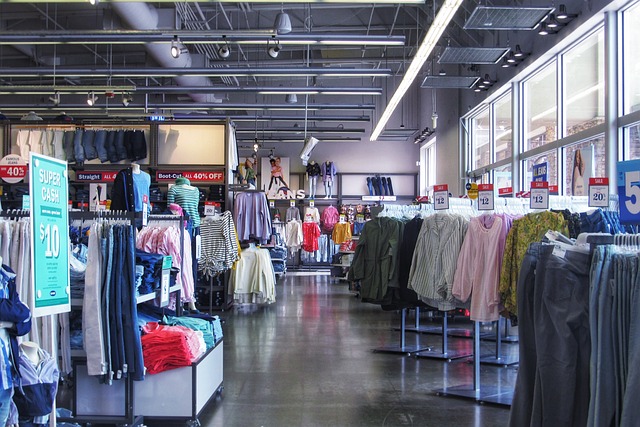By Lynne Laba, Head of U.S., Communisis VOX
Some brands dominate a given space so successfully, their greatest opportunity for continued expansion means turning their sights on new, even international markets. This can add tremendous complexity to those critical point-of-sale (PoS) campaigns, turning even the basics of a launch into a completely foreign experience.
For starters, you need to determine if a new market even has the materials necessary to build your displays. You have to figure out how they’ll be transported to, and placed within exact retail locations. You need to anticipate taxes and financial processes to purchase goods and pay providers. From varying local regulations to distinct, regional supply chains, there is a lot to consider, and when you grow to hundreds of markets, the difficulties of performing consistently and effectively across campaigns increases exponentially.
That’s not to say it shouldn’t be attempted: This is how great brands and fortunes are made. To make it a little easier, consider the following four tips designed to help meet PoS demands and facilitate expansion.
Maintain the chain
It’s imperative for brands to maintain levels of consistency when it comes to PoS expansions, ensuring a unified look and messaging. As an example, a brand focusing on sustainability may have a good marketing niche, but if it turns out your new displays were not made from recycled materials, it could harm your reputation and bottom line.
Without a firm supply chain, your PoS campaign could be doomed from the start. Availability of materials vary by region and so do costs. If high-quality, recycled canvas is required for a display, you could face a lack of materials or high import taxes. Consider enlisting a local supplier to find sustainable materials and negotiate bulk import rates. Just be sure they’re given strict quality control guidance for obtaining proper materials and production.
Further, conduct local factory inspections. This will not only verify your access to the right materials, it will allow you to reach better agreements with partners involved in production.
Follow the money
When you cross borders be careful not to cross those overseeing tax and payment procedures. Get it wrong and your PoS campaigns could incur high import taxes or fines. Avoid both by hiring a local customs broker to facilitate processes and reduce expenses.
Feet on the ground can introduce you to alternative local materials that could do the trick while eliminating import duties. Also, local currency could be mandatory for payments. This means you’ll need a global provider to handle payments or services of a local bank, as well as internal familiarity with financial terms so you can follow the money.
Keep it moving
You can build it but they won’t come: You’ve got to transport those PoS displays to retail locations so customers can interact with them. If that includes very remote markets, such as what you might find in an expansive region of Australia, you’ll need to know the local transportation infrastructure inside and out in order to meet deadlines. From identifying best routes to delivering displays that final mile, there is a lot to consider.
Again, look local for a logistics partner if you want to keep things moving. They’ll know the most cost-effective air and sea freight carriers and shipping routes. They’ll have dedicated resources and networks for handling moves, even if they involve large-scale PoS displays and having to get around shoddy road infrastructure.
Be grounded
Investments in PoS campaigns can easily be lost if retail displays aren’t positioned in the right spot to reach the right audience. For instance, you wouldn’t want an expensive health and beauty display stuck in a corner, away from foot traffic and in an irrelevant department. For that matter, you don’t want a display to end up in a retail store located in a difficult-to-reach neighborhood or one that experiences a low volume of visitors.
A retail partner can help you make decisions but they’re not going to be as objective or insightful as your own, on-the-ground resources. Visiting retail locations is advised, but even so, you’ll need a local, knowledgeable partner to provide reliable feedback and in real-time, if needed.
Just be certain they understand local regulations because every market has its own rules for displays, advertising and promotions. While not complying can result in fines, equally damaging, it can upend long-planned PoS campaigns and waste investments. So, either become an expert and ongoing authority on local regulations or find a local partner versed in legal and compliance issues to keep your plans on track.
Local motion
You’ve got a winning approach and it makes sense to duplicate it in new markets. Still, every location is different, and it’s easy for budgets to bloat and investments to tank when you lack up-to-date and ongoing familiarity.
If you want some motion in new market sales, think local. By harnessing the knowledge of local partners and resources, you’ll be able to better vet new markets, navigate the differences of each and deliver impactful PoS campaigns.
About the author
 Lynne Laba is the head of U.S. at Communisis VOX.
Lynne Laba is the head of U.S. at Communisis VOX.
Related Articles

Transaction-Level Data Is Raising the Bar for Attribution and Accountability
For retailers building or scaling retail media and broader commerce marketing programs, this shift reshapes how audiences should be built and forces a more disciplined approach to transparency and cross-channel accountability.

How Rising Consent Awareness Is Reshaping Customer Experience, Data Quality, and Campaign Performance
It also revealed that another 35% expect to deploy personalized AI recommendations in the next year, as AI moves from pilots into the heart of omnichannel journeys, search and merchandising.

5 Strategies for Scaling BOPIS Operations During Holiday Peak Season
Companies across various sectors are leveraging automation to enhance in-store experiences and improve customer satisfaction, including within BOPIS systems. It is shown to bolster productivity and decision-making, too.

How to Evaluate Retail Automation Solutions for Your Business
To achieve the benefits of retail automation, you must find the right partner. Consider the following tips to make an informed decision.


 for the latest news and job opportunities in retail tech
for the latest news and job opportunities in retail tech 